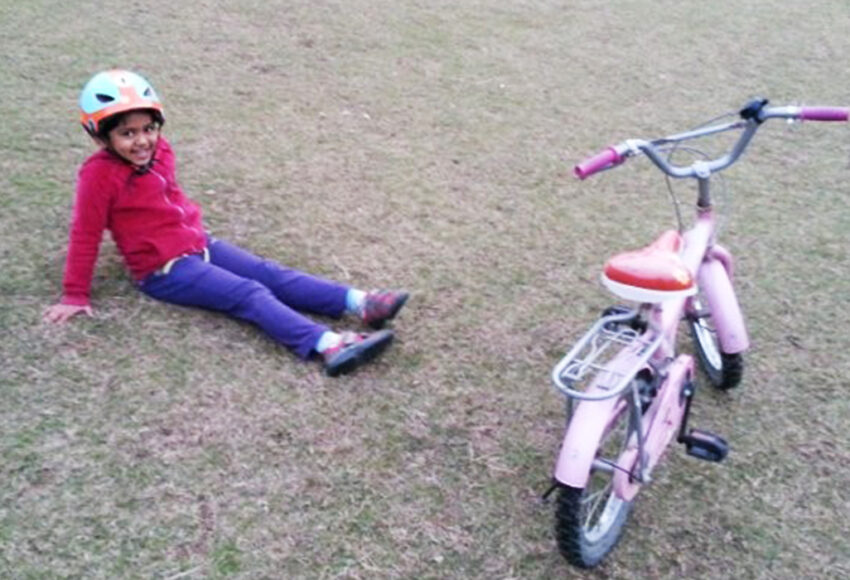
- June 16, 2023
- bluesky
- 0 Comments
- Behavioral Skills, Experience
Being a Leader; not differently challenging from being a Dad. Happy Father’s Day
As I was sitting in the park watching over my 5-year-old daughter my thoughts wandered on how and what role I could play in her development as a strong, sincere, adult who wants to do something significant and meaningful with her life and be a good human being. I realized that my thoughts were not very different when it comes to my role in developing my team. I recognize the role I could play in both while recognizing the boundaries of my influence.
I started thinking about the similarities in what I want to be for my child as a parent and as a leader to my team. Here are some;
1. Wear your values on our sleeve: Both children and subordinates will ascribe to us the values that we demonstrate and not what we talk about. One has to be really sure about what is important and demonstrate by action. If we expect them to respect people of all kinds we should start by respecting them ourselves. Respect for roles and hierarchies at the office would relate to respect for drivers, maids, cooks at home – for the value and service they provide as professionals.
2. Consistency of behaviour builds understanding and predictability: We all get angry and happy for different reasons and at different thresholds? But can we have the same standards and reasons irrespective of who is in front of us? Do we subconsciously give more leeway to one child? or one team member just because they are older/younger? male/female? We are all slaves of our personalities and people will accept us for what we are as long as the reasons are just and the yardstick the same. Respect will come in the long run even if our child or team member is upset in the short term.
3. Being the anytime 911: When a child or a team member has made a mistake, an error of judgment, and is in an emergency situation, they should have the freedom and sense of entitlement to call their parent/boss even though they are aware that they are in the wrong. To maintain that balance is critical. How does a child/teammate take risks otherwise? How do they learn to take action and realize that actions have consequences?
4. Not confuse fear with respect: The former is a result of one who uses their position of control to extract respect and therefore hollow and the other is one that is a result of demonstrated action that proves that you have earned your place as a leader or a parent. Fear induces a lack of ownership and motivation to do well. With fear, the motive is no longer to be good and excel but to conform and fall in line.
5. Being a better part of you: I would want my child to be better than me in all respects and would want to provide all available avenues and opportunities to make that happen. Should we wish anything different for our team? Wouldn’t the success of our team reflect on us?
6. Focus on Habits, not performance: I would rather focus on building habits in my child, which when practiced consistently becomes her way of being and doing. Performance and standards then, are a by-product and self-driven. As a leader too, one is better off pushing ones’ team to create and commit to behaviours and hold them accountable for the process rather than the results. If we are patient and allow for failures from time to time, the results will come in time and capability then becomes permanent.
I started thinking about the similarities in what I want to be for my child as a parent and as a leader to my team. Here are some;
1. Wear your values on our sleeve: Both children and subordinates will ascribe to us the values that we demonstrate and not what we talk about. One has to be really sure about what is important and demonstrate by action. If we expect them to respect people of all kinds we should start by respecting them ourselves. Respect for roles and hierarchies at the office would relate to respect for drivers, maids, cooks at home – for the value and service they provide as professionals.
2. Consistency of behaviour builds understanding and predictability: We all get angry and happy for different reasons and at different thresholds? But can we have the same standards and reasons irrespective of who is in front of us? Do we subconsciously give more leeway to one child? or one team member just because they are older/younger? male/female? We are all slaves of our personalities and people will accept us for what we are as long as the reasons are just and the yardstick the same. Respect will come in the long run even if our child or team member is upset in the short term.
3. Being the anytime 911: When a child or a team member has made a mistake, an error of judgment, and is in an emergency situation, they should have the freedom and sense of entitlement to call their parent/boss even though they are aware that they are in the wrong. To maintain that balance is critical. How does a child/teammate take risks otherwise? How do they learn to take action and realize that actions have consequences?
4. Not confuse fear with respect: The former is a result of one who uses their position of control to extract respect and therefore hollow and the other is one that is a result of demonstrated action that proves that you have earned your place as a leader or a parent. Fear induces a lack of ownership and motivation to do well. With fear, the motive is no longer to be good and excel but to conform and fall in line.
5. Being a better part of you: I would want my child to be better than me in all respects and would want to provide all available avenues and opportunities to make that happen. Should we wish anything different for our team? Wouldn’t the success of our team reflect on us?
6. Focus on Habits, not performance: I would rather focus on building habits in my child, which when practiced consistently becomes her way of being and doing. Performance and standards then, are a by-product and self-driven. As a leader too, one is better off pushing ones’ team to create and commit to behaviours and hold them accountable for the process rather than the results. If we are patient and allow for failures from time to time, the results will come in time and capability then becomes permanent.
by: Bhaskar Thyagarajan, Founder, CEO – BlueSky Learning.
